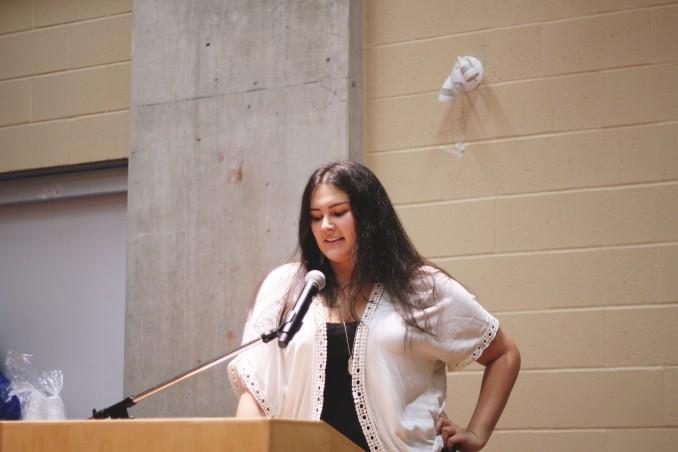By Victoria Shariati
Examples of modern colonialism in Canada was discusses at a panel event at Ryerson on Tuesday night.
Colonialism in Context: Canada’s “Post-Colonial” State and the Marginalization of Indigenous Peoples was hosted by the Environment and Urban Sustainability Students’ Union (EUSSA). Dr. Cyndy Baskin, chair of Ryerson’s Aboriginal Education Council and associate professor in the school of social work, was one of the four panelists. Topics such as missing and murdered Indigenous women, mental health, mining corporations and political autonomy were discussed.
The idea for the event came from Roberta Nakoochee, a fourth-year environment and urban sustainability student. She said after learning about the northern Ontario Ring of Fire, that she wanted to host an event about the effects of extraction corporations on Indigenous people. Nakoochee then went to the EUSSA, and decided to broaden the scope of the event to colonialism as a whole.
Nakoochee said the goal of the event was to bring people together to initiate the exchange of ideas.
“There’s this special magic in bringing a large amount of people together to share ideas and listen to stories,” Nakoochee said. “I think it’s really valuable for people to grasp the connection between what we experience as a group and colonialism.”
Nakoochee, 23, said she hopes to educate people with the discussion and illustrate how colonialism is still occurring today. Indigenous people can’t start the process of decolonization themselves and they need the support of allies, she said.
“We need to see each other as people.”
“The women and girls who go missing are exactly like you or me or anyone else who attends tonight,” Nakoochee said.
Sumiya Jimale, 23, attended the event to hear from an Indigenous person’s perspective. She said she’s used to learning about colonialism from textbooks, and was interested in learning from people’s first-hand experiences.
“I haven’t really been exposed to this history at school a lot,” Jimale said. “I wanted to learn more about what I could do.”
The first-year nursing student said the event taught her how complex the issue of colonialism is. She also said it inspired her to learn more about Indigenous people.
For Aisha Syde, a third-year environment and urban sustainability student, decolonization and education should be “everyone’s job.” There can’t be a separation between Indigenous people and the rest of Canada, she said.
“Going to events and learning the history makes it so real,” Syde said. “Maybe one day it can lead to policy change.”













Leave a Reply